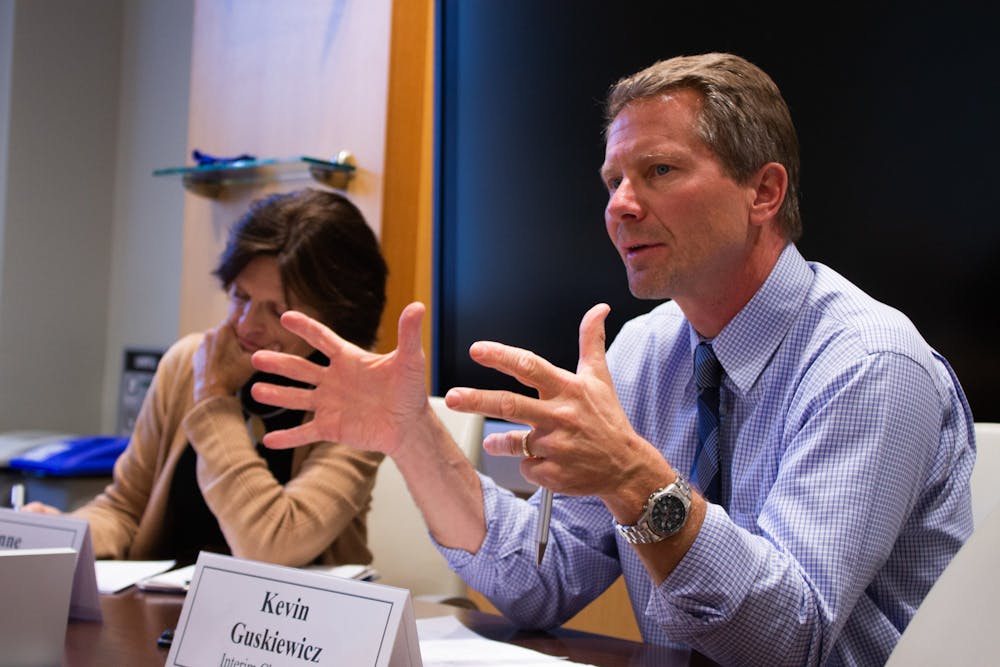Just a few hours before UNC announced its revised spring semester schedule, University desk Editor Maddie Ellis talked with Chancellor Kevin Guskiewicz, who will be installed as UNC's 12th chancellor on Sunday. Guskiewicz discussed the spring planning process, semester breaks and what decisions still have to be made.
This interview has been edited for content and clarity.
The Daily Tar Heel: How are you feeling going into your formal installation Sunday?
Kevin Guskiewicz: It's exciting. I have been proud to lead Carolina. I think we're right at about 20 months since I became interim chancellor, and then December was announced as the chancellor — and so I've be proud to lead Carolina during these challenging times.
And while the installation itself is mainly virtual and it'll be different than in the past, it's important to remember that this has been a hard year for everyone. So I'm disappointed, but so are the students who had to miss their commencement back in May, and so those ceremonies are important, and this will be a very different type of installation and a different type of University Day. But it is an opportunity for us to reflect on our University's past and, more importantly, to look toward the future.
DTH: Has the UNC System issued any guidance about planning for the spring?
KG: They've given every campus the ability to set their spring calendar ... We've been consulting with our faculty experts, public health and infectious disease experts to get their input. We've been talking to the deans and various faculty groups, and so I'm really proud of the way that we collectively are coming to, I think the right decision on the spring calendar ... I'm certainly keeping (the UNC-System Office) apprised of what our plans are, and so they've been very supportive.
DTH: What guidance has changed leading UNC to now offer mass asymptomatic testing?
KG: Testing is a lot better today than it was even just eight or nine weeks ago. There are more options available, the sensitivity of many of the testing methods has improved. So we decided that we should do some pilot testing to see what might work best for that spring semester. And so, we were able to bring a company from Wake Forest that's doing the saliva-based testing, because we heard from a lot of students that the nasal-based testing was — that they weren't interested in getting in those lines for that testing. And so, we're finding that we're having more success with the saliva-based testing. The sensitivity of it is better than what it was, even just two or three months ago.



